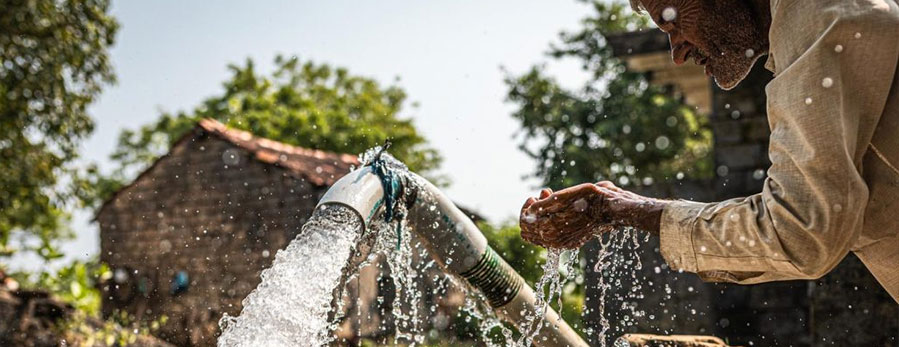#Raw Materials
World Water Day 2023: How much water does cotton use?

In celebration of World Water Day, taking place today, March 22, 2023, let’s explore the facts about cotton’s relationship with water, taking a look at the crucial role of water stewardship in the production of Better Cotton, and the steps we must take to combat water scarcity and pollution.
While it is often stated that cotton is a thirsty crop, data from the International Cotton Advisory Committee (ICAC) shows that, to produce 1kg of lint, roughly equivalent to one T-shirt and a pair of jeans, cotton globally uses 1,931 litres of irrigation water and 6,003 litres of rainwater on average. Relative to other crops, this is not a disproportionately high quantity.
It’s also important to state that the data from ICAC is a global average and the amount of water consumed greatly differs per region. For example, in the US, cotton farmers in the southeast use 234 litres of irrigated water per kilogram of cotton on average whereas farmers in the west use 3,272 litres, demonstrating the importance of focusing on the local and regional context.
However, as highlighted by Transformers Foundation, we must equally recognise that global averages also fail to capture impact, and do not indicate whether water is sustainably managed on a case-by-case basis.
Labelling cotton ’thirsty’ in isolation from its growing context is therefore misleading. Cotton grown in water-stressed regions can contribute to water management challenges, but local climate, poor irrigation systems, poverty, and failure of governance are also contributing factors.
In many regions, cotton is entirely rainfed. However, approximately half of its production area requires some sort of irrigation, and as freshwater becomes an increasingly scarce and precious resource, it is critical that we use it more sustainably.
Poor irrigation practices, or poor water management more generally, can have devastating, long-term effects on farming activities, on the whole water basin’s environment, and on the broader communities who share its water resources. This impact is not limited to the quantity of water available, but also the quality of the water, due to the use of agrochemicals such as pesticides and fertilisers.
By implementing sustainable farming practices, farmers can learn how to use water efficiently on both rainfed and irrigated farms to achieve greater yields and consume and pollute less water. This not only contributes to more sustainable water use but also helps farmers improve their livelihoods and build resilience to climate change — something that will become increasingly important as pressure on water supply intensifies.
The Better Cotton Principles and Criteria provides farmers with a comprehensive framework for using water in a way that improves yields while conserving resources for them and their community. To find out more, head to this link:
https://bettercotton.org/field-level-results-impact/key-sustainability-issues/water-stewardship/
















